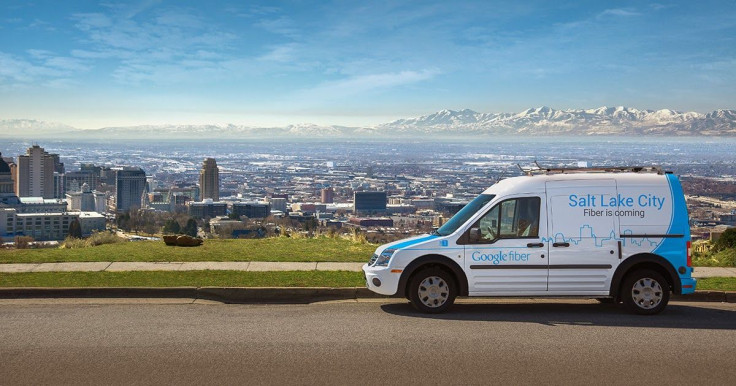Google Fiber TV Is Not Killing Big Cable Yet

Google Fiber has drawn rapturous reviews for its gigabit internet service since it launched in Kansas City (both Missouri and Kansas) in 2012. The bad news for Google is that, while the service is now at least partly available in nine U.S. markets, few people in the chosen cities appear to be taking advantage of Google’s Fiber-delivered TV package. At the end of 2015, a mere 53,000 households got both their internet and TV from Google, which added only 12,000 video customers in the last six months of the year.
That’s according to data released by the U.S. Copyright Office and cited in a research note Thursday by MoffettNathanson. The figures show Google Fiber has just 0.0005 percent of the market share of the entire pay TV market, MoffettNathanson said. Put in perspective, Fiber is about one-seventh the size of a relatively small cable company like Cable One.
MoffettNathanson analysts Craig Moffett and Michael Nathanson were careful to point out that this doesn’t necessarily spell doom for Google Fiber’s TV offering. “None of this is intended as criticism, nor is it a suggestion that Google Fiber isn’t ‘doing well,’” the two wrote. These numbers only apply to video services; the number of internet customers is undoubtedly higher, though they are not mentioned in the report.
Still, even as the service expands, the rate of growth is slowing. Year-over-year growth was at just about 96 percent for the first half of 2015, and fell to around 79 percent in the second half. As MoffettNathanson points out, though, slowing growth is hardly cause for Google execs to rend their garments.
One possible explanation for this slowdown and the relatively low penetration of TV services is that Google Fiber internet customers just aren’t the type to want a cable TV bundle, even if it is delivered over a fat pipe.
“I certainly think it is possible that Google’s attach rate for TV is lower than for peers,” Moffett says. AT&T U-Verse, he adds, generally saw 90 percent of its internet customers tack on TV service as well.
However, in general, Moffett says, the “lion’s share” of customers want an internet-TV service bundle, and it makes a lot more financial sense for Google to induce as many people as possible to opt in to both to make the cost of deploying all that fiber worth it.
In the case of Provo, Utah, Google merely took over an existing municipal fiber network for just $1; the city was $39 million in debt over the project, with further expected losses of $8 million. Yet only 65 additional Provoans signed up for TV service with Google in the last six months of 2015.
Alphabet Inc., Google’s parent company, revealed in its 10-K filing that in 2015 the company lost $3.56 billion on its “Other Bets,” which include Google Fiber and health tech start-up Verily, while making only $448 million. Though Google Fiber plans on expanding to seven more cities in the near future, it looks to be a while yet before it starts making money off it.
© Copyright IBTimes 2024. All rights reserved.






















